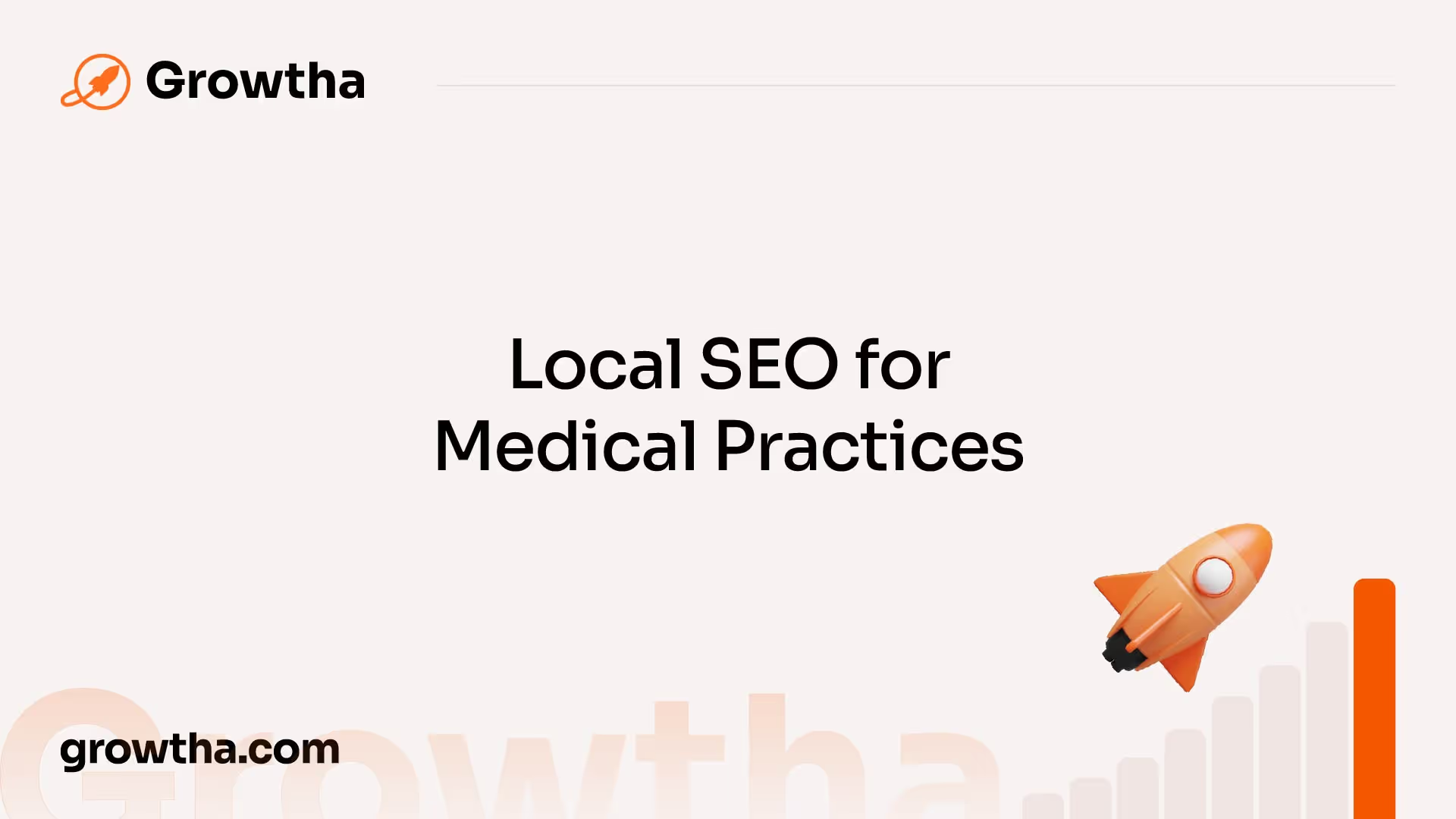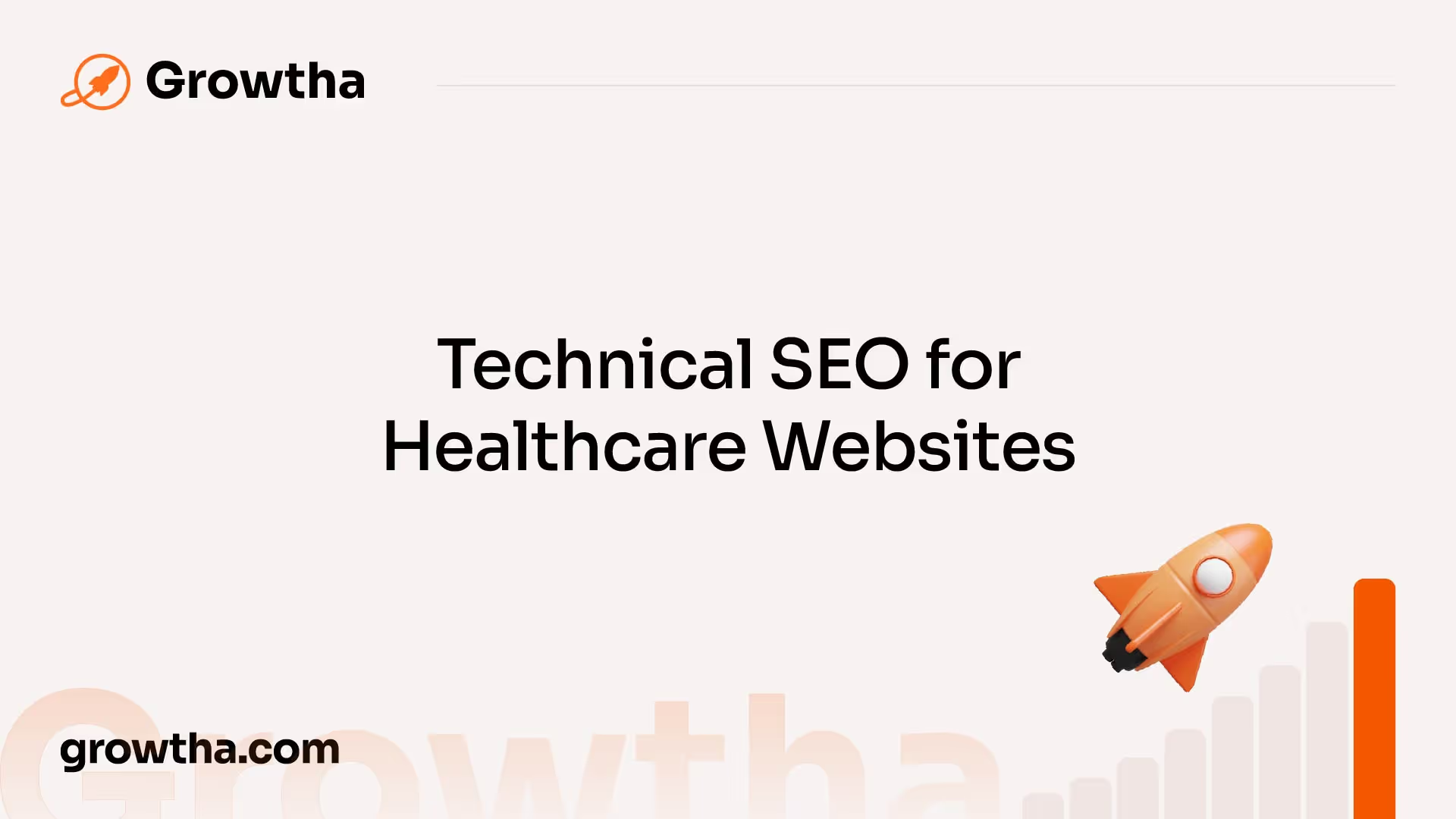Medical SEO Techniques Unveiled
SEO is vital for healthcare organizations as it helps improve their online visibility and reach.


Medical SEO Techniques Unveiled
Understanding Healthcare SEO

In the digital age, search engine optimization (SEO) plays a crucial role in the success of healthcare marketing strategies. By understanding the importance and benefits of SEO in the healthcare industry, medical practices can stay ahead of the game and reach their target audience effectively.
Importance of SEO in Healthcare
SEO is vital for healthcare organizations as it helps improve their online visibility and reach. When potential patients search for medical information or services, search engines like Google and Bing serve as the primary sources for information. By optimizing their websites and content for search engines, healthcare providers can ensure that their websites appear prominently in search results.
By implementing effective SEO techniques, healthcare organizations can attract targeted organic traffic to their websites. This means that when individuals search for medical services or information related to their health concerns, they are more likely to discover and engage with healthcare providers who have optimized their online presence.
Key Benefits of SEO Marketing
Implementing SEO strategies in healthcare marketing offers several key benefits. Some of these benefits include:
- Increased Website Traffic: By optimizing their websites for relevant keywords and search queries, healthcare providers can attract more visitors to their websites. This increased traffic can lead to higher patient conversions and appointments.
- Enhanced Online Visibility: SEO efforts help healthcare organizations improve their online visibility, making it easier for potential patients to find them. This increased visibility establishes credibility and trust among patients seeking medical services.
- Targeted Audience Engagement: SEO enables healthcare providers to target specific keywords and demographics, ensuring that their content reaches the right audience. This targeted approach increases the chances of attracting patients who are actively seeking the services they offer.
- Cost-Effective Marketing: Compared to traditional advertising methods, SEO is a cost-effective marketing strategy. By focusing on organic search results, healthcare providers can reduce their reliance on paid advertising and reach a wider audience without incurring significant costs.
- Long-Term Results: SEO is an ongoing process that yields long-term results. By consistently optimizing their websites and creating valuable content, healthcare providers can maintain their online visibility and attract patients over an extended period.
- Competitive Advantage: In a highly competitive healthcare industry, effective SEO strategies can give healthcare providers a competitive edge. By outranking competitors in search engine results, healthcare organizations can establish themselves as leaders in their field.
Understanding the importance and benefits of SEO in the healthcare industry is the first step toward implementing effective medical SEO techniques. By optimizing their online presence, healthcare providers can connect with their target audience, drive website traffic, and ultimately increase patient conversions.
Effective Medical SEO Strategies

To stay ahead in the competitive healthcare industry, implementing effective SEO strategies is crucial. These strategies help healthcare providers optimize their online presence, improve visibility in search engine results, and attract relevant traffic. In this section, we will explore three key medical SEO techniques: on-page optimization, off-page optimization, and local SEO for medical practices.
On-Page Optimization
On-page optimization focuses on optimizing various elements within a website to improve its search engine rankings. It involves optimizing the content, meta tags, headings, URLs, and internal linking structure of a website. By implementing on-page optimization techniques, healthcare websites can enhance their visibility to search engines and provide a better user experience.
Some key on-page optimization techniques for medical SEO include:
- Keyword research and optimization: Identifying relevant keywords and incorporating them naturally into the website's content, meta tags, headings, and URLs.
- High-quality content creation: Producing informative, well-researched, and unique content that addresses the needs and queries of the target audience. This helps establish credibility and attract organic traffic.
- Optimized meta tags: Crafting compelling meta titles and descriptions that accurately summarize the content and encourage users to click through to the website.
- Proper heading hierarchy: Structuring content with logical and hierarchical headings (H1, H2, H3, etc.) to improve readability and provide search engines with a clear understanding of the page structure.
- User-friendly URLs: Creating clean and descriptive URLs that include relevant keywords and make it easier for search engines and users to understand the page's content.
By implementing on-page optimization techniques, healthcare websites can improve their search engine rankings and attract more organic traffic.
Off-Page Optimization
Off-page optimization involves activities that take place outside of the website to improve its visibility and reputation in search engine results. This technique focuses on building high-quality backlinks from reputable websites, increasing brand mentions, and enhancing social signals.
Some key off-page optimization techniques for medical SEO include:
- Link building: Acquiring high-quality backlinks from authoritative websites in the healthcare industry. These backlinks act as a vote of confidence for search engines, indicating the website's credibility and relevance.
- Online reputation management: Managing and monitoring online reviews and ratings to maintain a positive reputation. Positive reviews can influence patients' decisions and improve the website's visibility in local search results.
- Social media marketing: Engaging with the target audience through social media platforms to build brand awareness, drive traffic to the website, and encourage social sharing of valuable content.
Off-page optimization techniques play a crucial role in enhancing a healthcare website's authority, reputation, and visibility in search engine results.
Local SEO for Medical Practices

Local SEO is vital for medical practices as they primarily serve a specific geographic area. Local SEO techniques help healthcare providers optimize their online presence to attract patients from their local community. This is especially important for individuals searching for healthcare services in their immediate vicinity.
Some key local SEO techniques for medical practices include:
- Optimizing Google My Business: Claiming and optimizing the Google My Business listing to ensure accurate and up-to-date information is displayed in local search results.
- Local directory listings: Ensuring consistent and accurate NAP (Name, Address, Phone Number) information across various online directories, such as Yelp, Healthgrades, and Yellow Pages.
- Localized content: Creating content that caters to the local community and includes location-specific keywords and information.
- Online reviews and ratings: Encouraging patients to leave positive reviews and ratings on platforms like Google, Yelp, and Healthgrades. Positive reviews can influence local search rankings and attract more patients.
By implementing local SEO techniques, medical practices can improve their visibility in local search results, attract more local patients, and establish a strong online presence within their community.
By combining on-page optimization, off-page optimization, and local SEO techniques, healthcare providers can enhance their online visibility, attract relevant traffic, and ultimately grow their patient base. It's important to continually evaluate and adapt these strategies to stay ahead of the game in the ever-evolving world of medical SEO.
Content Marketing for Medical SEO

When it comes to medical SEO, content marketing plays a crucial role in driving organic traffic and improving search engine rankings. By creating quality content and optimizing it for SEO, healthcare websites can attract more relevant visitors and establish their expertise in the industry.
Creating Quality Content
Producing high-quality content is the foundation of any successful medical SEO strategy. When creating content for your healthcare website, it's essential to consider the needs and interests of your target audience. By providing valuable and informative content, you can build trust with your audience and position yourself as a reliable source of information.
To create quality content, follow these guidelines:
- Research and Understand Your Audience: Gain insights into the demographics, preferences, and pain points of your target audience. This knowledge will help you tailor your content to their specific needs.
- Focus on Relevant Topics: Address topics that are relevant to your medical specialty or practice. Choose subjects that are frequently searched for by patients and cover them in a comprehensive and authoritative manner.
- Ensure Accuracy and Credibility: Your content should be accurate, reliable, and up-to-date. Cite reputable sources and include references to support your claims. This will enhance your credibility and establish you as an expert in your field.
- Use Clear and Engaging Language: Write in a clear, concise, and easy-to-understand manner. Avoid using complex medical jargon that may confuse or alienate your audience. Engage your readers with a conversational tone and incorporate storytelling techniques when appropriate.
Optimizing Content for SEO
Creating high-quality content is just the first step. To maximize its impact on your medical SEO efforts, you need to optimize your content for search engines. Here are some key strategies for optimizing your healthcare content:
- Keyword Research: Identify relevant keywords and key phrases related to your content. Use tools like Google Keyword Planner or SEMrush to find keywords that have a high search volume and low competition. Incorporate these keywords naturally into your content, including headings, subheadings, and body text.
- Meta Tags and Descriptions: Optimize your meta tags, including the title tag and meta description, to accurately reflect the content of each page. These tags provide search engines with valuable information about your page and influence click-through rates from search engine results pages (SERPs).
- URL Structure: Create SEO-friendly URLs that are descriptive and include relevant keywords. Avoid using long, complex URLs that may be difficult for search engines and users to understand.
- Internal and External Linking: Include internal links within your content to guide readers to related articles or pages on your website. Additionally, incorporate external links to reputable sources that support and enhance the information you provide.
- Optimized Images and Videos: Optimize images and videos on your website by using descriptive file names, alt tags, and captions. This helps search engines understand the content of these visual elements and improves accessibility for users.
By creating quality content and optimizing it for SEO, you can increase your visibility in search engine results and attract more organic traffic to your healthcare website. Remember to regularly update and refresh your content to ensure it remains relevant and valuable to your audience.
Technical SEO for Healthcare Websites

When it comes to healthcare websites, implementing technical SEO strategies is crucial for improving online visibility and attracting the right audience. In this section, we will explore two essential aspects of technical SEO for healthcare websites: website structure and navigation, and mobile optimization.
Website Structure and Navigation
A well-structured and easily navigable website is not only user-friendly but also plays a significant role in search engine optimization. Here are some key considerations for optimizing the structure and navigation of your healthcare website:
- Logical Organization: Ensure that your website is logically organized, with a clear hierarchy of pages and sections. This helps search engines understand the structure of your website and makes it easier for visitors to find the information they need.
- URL Structure: Use descriptive and SEO-friendly URLs that reflect the content of each page. Include relevant keywords in the URL to improve search engine visibility. For example, instead of using a generic URL like "www.yourwebsite.com/page1," opt for a more descriptive URL like "www.yourwebsite.com/medical-services."
- Internal Linking: Implement a strategic internal linking strategy to connect relevant pages within your website. Internal links help search engines discover and index your content more effectively, while also providing users with additional resources and information.
- Sitemap: Create and submit a sitemap to search engines. A sitemap is a file that contains a list of all the pages on your website, helping search engines crawl and index your content more efficiently.
Mobile Optimization
In today's mobile-centric world, optimizing your healthcare website for mobile devices is no longer an option but a necessity. Mobile optimization refers to ensuring that your website is responsive and performs well on smartphones and tablets. Here's why it matters:
- User Experience: A mobile-friendly website provides a seamless and enjoyable user experience. It adapts to different screen sizes, ensuring that visitors can easily navigate and interact with your content on their mobile devices.
- Search Engine Rankings: Mobile optimization is a key factor in search engine rankings. Search engines prioritize mobile-friendly websites, as they cater to the increasing number of users accessing the internet through mobile devices. A mobile-responsive website is more likely to rank higher in search engine results.
To optimize your healthcare website for mobile devices, consider the following:
- Responsive Design: Ensure that your website is built using a responsive design framework. This allows the layout and content to adapt automatically to the screen size of the device, providing an optimal viewing experience.
- Page Speed: Optimize your website for fast loading times on mobile devices. Compress images, minify code, and leverage caching techniques to improve page speed. A slow-loading website can lead to higher bounce rates and lower search engine rankings.
By focusing on website structure and navigation, as well as mobile optimization, healthcare websites can enhance their online presence and improve their chances of attracting and engaging with their target audience. Implementing these technical SEO techniques will not only benefit your search engine rankings but also provide a better user experience for your visitors.
Measuring Success in Medical SEO
To determine the effectiveness of your healthcare SEO efforts, it's essential to measure the success of your strategies. By tracking key performance indicators (KPIs) and utilizing tools specifically designed for tracking SEO performance, you can gain valuable insights into the impact of your medical SEO techniques.
Key Performance Indicators (KPIs)
Key performance indicators (KPIs) are measurable metrics that help assess the performance and effectiveness of your medical SEO strategies. By monitoring these KPIs, you can gauge the progress and success of your efforts. Here are some important KPIs to consider:

Tracking these KPIs regularly allows you to identify trends, measure progress, and make data-driven decisions to optimize your medical SEO strategies.
Tools for Tracking SEO Performance
Several tools are available to help you track and analyze the performance of your medical SEO efforts. These tools provide valuable insights and data to assess the effectiveness of your strategies. Here are some commonly used tools:
- Google Analytics: Google Analytics is a powerful and free tool that provides detailed data about your website's performance. It offers information on website traffic, user behavior, conversion rates, and much more. By setting up goals and tracking conversions, you can measure the impact of your medical SEO efforts.
- Google Search Console: Google Search Console allows you to monitor your website's presence in Google search results. It provides data on keyword rankings, click-through rates, and website errors. Utilizing this tool helps you identify areas for improvement and optimize your website for better visibility.
- SEO software suites: There are various SEO software suites available that offer comprehensive SEO analysis and tracking. These tools provide in-depth insights into keyword rankings, backlink profiles, competitor analysis, and more. Examples of popular SEO software suites include Moz, SEMrush, and Ahrefs.
By leveraging these tools, you can gain a better understanding of the performance of your medical SEO strategies. Regular analysis and monitoring of these metrics allow you to make data-driven decisions and continuously improve your healthcare SEO efforts.
Measuring the success of your medical SEO campaigns through KPIs and utilizing tracking tools empowers you to optimize your strategies and stay ahead in the competitive healthcare landscape.
References
[1]: https://comradeweb.com/blog/medical-seo-tips-to-improve-seo-for-medical-websites/
[2]: https://www.digitalauthority.me/resources/new-medical-seo-practices/
[3]: https://www.linkedin.com/pulse/importance-local-seo-medical-practices-aarna-systems-a32uf?trk=article-ssr-frontend-pulsemore-articlesrelated-content-card
[4]: https://www.cardinaldigitalmarketing.com/healthcare-resources/blog/easy-link-building-strategies-for-healthcare-marketers/
[5]: https://varn.co.uk/08/24/6-seo-considerations-for-healthcare-medical-and-pharma-websites/







